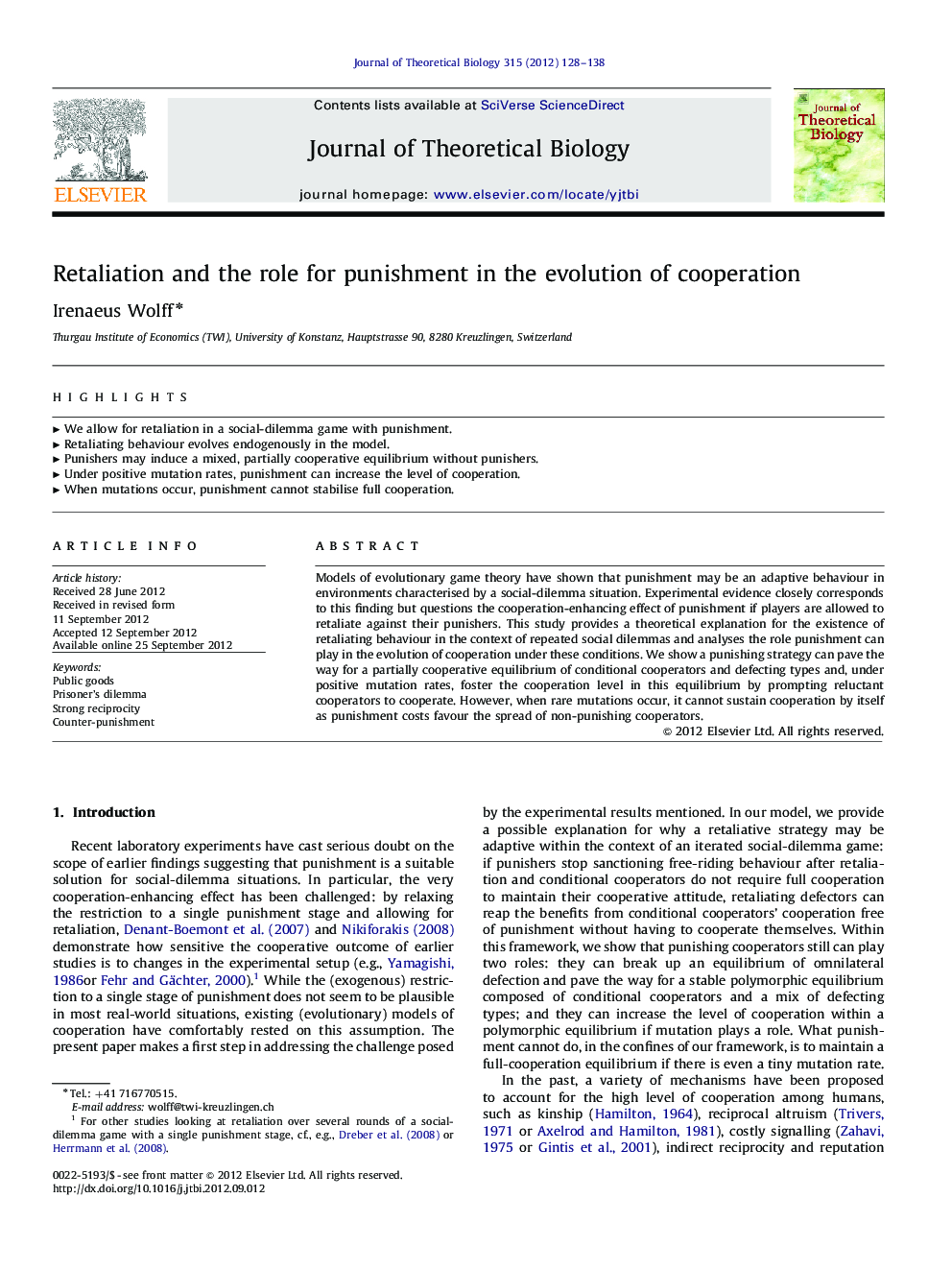| Article ID | Journal | Published Year | Pages | File Type |
|---|---|---|---|---|
| 4496592 | Journal of Theoretical Biology | 2012 | 11 Pages |
Models of evolutionary game theory have shown that punishment may be an adaptive behaviour in environments characterised by a social-dilemma situation. Experimental evidence closely corresponds to this finding but questions the cooperation-enhancing effect of punishment if players are allowed to retaliate against their punishers. This study provides a theoretical explanation for the existence of retaliating behaviour in the context of repeated social dilemmas and analyses the role punishment can play in the evolution of cooperation under these conditions. We show a punishing strategy can pave the way for a partially cooperative equilibrium of conditional cooperators and defecting types and, under positive mutation rates, foster the cooperation level in this equilibrium by prompting reluctant cooperators to cooperate. However, when rare mutations occur, it cannot sustain cooperation by itself as punishment costs favour the spread of non-punishing cooperators.
► We allow for retaliation in a social-dilemma game with punishment. ► Retaliating behaviour evolves endogenously in the model. ► Punishers may induce a mixed, partially cooperative equilibrium without punishers. ► Under positive mutation rates, punishment can increase the level of cooperation. ► When mutations occur, punishment cannot stabilise full cooperation.
